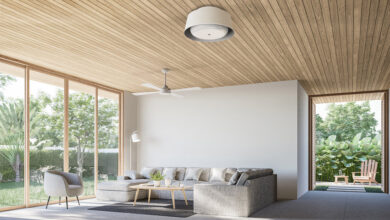ASHB Publishes New Research on Smart Home Technology, Market Trends
AI-driven features in home energy management and security systems excite more than half of the current smart home users, concludes new research exploring the perceptions, preferences and reservations of residential renters and owners regarding the adoption and usage of smart home technologies.
However, the survey also highlights data privacy concerns and high costs as barriers to the adoption of innovative technologies.
“It’s clear that vendors will need to balance smart living with smart saving by augmenting user experience and instilling trust,” said ASHB Board Chair Brian Ensign of Superior Essex Communications.
Funded by members of the Association for Smart Homes & Buildings and carried out by Harbor Research, the “Smart Home Technology & Market Trends” project includes feedback from over 800 consumers spanning the U.S. and Canada. The research uncovers the driving forces shaping the smart home industry, providing a comprehensive analysis of key technical barriers, customer pain points and adoption challenges in these markets.
Carried out between July 2023 and January 2024, the research also identifies the strategies, technologies and business models most likely to overcome those challenges and drive revenue growth in the future.
“This insight could not come at a better time, as innovations like AI gain speed against a backdrop of concerns over privacy and sustainability,” said ASHB CEO Greg Walker. “It’s key for vendors to better understand prevailing trends, challenges and opportunities in the evolution of the smart home.”
The research was funded by ASHB members Carrier Corporation, Resideo Technologies, Rheem Manufacturing, Schneider Electric, Snap One, TELUS and Trane Technologies.
For more information, visit ashb.com.



